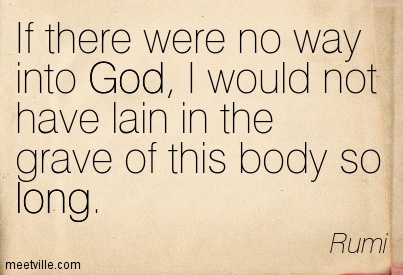Abraham Lincoln once asked one of his secretaries, “If you call a tail a leg, how many legs does a horse have?”.
“Five,” replied the secretary.
“No,” said the President, “The answer is four. Calling a tail a leg doesn’t make it a leg.”
AHA!
________________________________________________________________________________
So I’ve been reading this book, “The Untethered Soul,” which has so far turned out to be a dumbed-down version of Non-Dualistic philosophy. And that’s great because that shit can get confusing at times* and it’s good to have it explained in familiar terms. In Chapter Three, the writer challenges you to identify yourself by answering the question, “Who Are You?” This is a basic intervention used by Sri Ramana Maharashi, Sri Nisargadatta Maharaj, and even tweeked somewhat by my favorite, Sri Mooji. The technique is not groundbreaking but I appreciate the way he takes the reader, step by step, into an understanding of how you are not your name, your relationships, your experiences, your feelings or your thoughts.
You are not these things and you never could be any of these things. Your name and titles and experiences are merely costumes — to paraphrase Lincoln, “calling you a person doesn’t make you a person.”

To quote Sri Rupal “You are God in drag.”
Who are you then? Well that’s for each of us to find out in our individual practices, sitting silently or dancing violently into the great Understanding. But when you take that leap into admitting “I am not my body, nor my mind, nor any experience or culmination of experiences that happen in front of me” then you will begin the long and treacherous journey into yourself.
Sat Nam — May you be free today.
K
.
.
.
.
*hit me up if you are able to give me a dumbed-down explanation of the difference between Consciousness and Awareness though, for real for real

